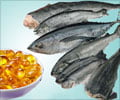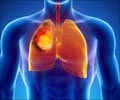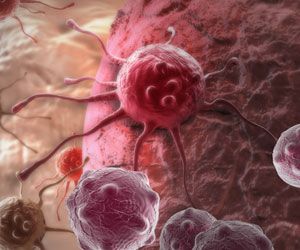Fish oils help combat cancer by cutting off the supply of oxygen and nutrients that fuel tumor growth and spread of the disease, say researchers.

The metabolite is epoxy docosapentaenoic acid (EDP), an endogenous compound produced by the human body from the omega-3 fatty acid named docosahexaenoic acid (DHA), which is found in fish oil and breast milk. In animal studies, the UC Davis scientists found that EDP inhibits angiogenesis, the formation of new blood vessels in the body.
Tumors grow and spread by hijacking the normal biological process of angiogenesis, which plays a role in wound repair as well in growth and development.
The UC Davis researchers determined that by inhibiting angiogenesis, EDP reduces the growth and spread (metastasis) of tumors in mice. The research provides the first scientific evidence about EDP's potent anti-cancer, anti-metastatic effects.
EDP works by a different mechanism than many current anti-cancer drugs that block angiogenesis.
"Our investigation opens up a new understanding of the pathways by which omega-3 fatty acids exert their biologic effects," said Guodong Zhang, the lead author of the article and a postdoctoral researcher in the laboratory of Bruce Hammock in the Department of Entomology and the UC Davis Comprehensive Cancer Center.
Advertisement
The EDPs are broken down in the body by the enzyme soluble epoxide hydrolase (sEH). In previous research, Hammock's lab showed that inhibitors of the sEHI enzyme (sEHIs) help to normalize physiological activity. In the current study, UC Davis researchers determined that the addition of sEHI stabilized EDP in circulating blood thereby producing EDPs' anti-tumor effects.
Advertisement
"It may be possible to improve the efficacy of these anti-cancer drugs by combining them with a diet high in omega-3 and low in omega-6 fatty acids," Hammock said.
The researchers also found that a metabolite of arachidonic acid (ARA), an omega-6 fatty acid, has the opposite effect of EDP. The ARA metabolite, epoxyeicosatrienoic acids (EETs), slightly increases angiogenesis and tumor progression in mice.
UC Davis scientists determined that EDP starves tumors by inhibiting vascular endothelial growth factor (VEGF) and fibroblast growth factor-2 (FGF-2)-induced angiogenesis in mice. In laboratory cultures, EDP also suppresses the endothelial cell migration needed for new blood vessels.
Thus, EDP-based angiogenesis inhibitors offer an advantage over angiogenesis inhibitors that target the VEGF-VEGFR2 pathway. The drugs that target the VEGF-VEFGFR2 pathway increase patients' risk for high blood pressure.
Because EDPs widen the blood vessels, a medication based on the UC Davis researchers' discovery should not increase the patient's risk for high blood pressure.
The scientists report their discovery in the Proceedings of the National Academy of Sciences (PNAS).
Source-ANI















